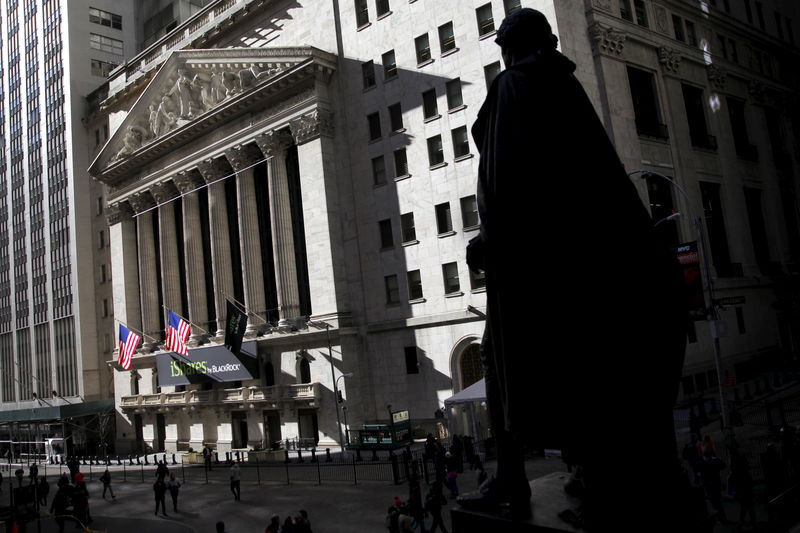Street Calls of the Week
By Geoffrey Smith
Investing.com -- U.S. stock markets opened higher on Wednesday as the market recovered its nerve in the wake of the inflation-driven rout on Tuesday.
By 9:45 AM ET (1445 GMT), the Dow Jones Industrial Average was up 151 points, or 0.4% at 35,520 points. The S&P 500 was up 0.7% and the Nasdaq Composite, which sold off the most heavily on Tuesday, was outperforming with a gain of 0.9%. All three remain below where they finished last week, however, under pressure from rising bond yields. The -Year U.S. Treasury hit a new two-year high of 1.90% overnight before easing back to 1.85%.
There was little change in the driving narrative of the last week to explain the movement, but rather a sense that Tuesday's selloff had overshot. Dip-buyers were encouraged by stronger-than-expected earnings from the financial and consumer sector, while housing starts data released earlier also pointed to sustained strength in the housing market despite fears of overheating.
Housing starts rose 1.4% in December to their highest level since March, while building permits rose a whopping 9.1%, just shy of their all-time high. The numbers suggest that the surge in home prices over the last two years is finally prompting a response from the supply side, with a conspicuously sharp rise in the number of multi-family homes being planned and built.
Bank of America (NYSE:BAC) stock rose 2.7% and Morgan Stanley (NYSE:MS) stock rose 1.6% after both banks easily cleared an expectations bar that had been lowered by JPMorgan (NYSE:JPM), Citigroup (NYSE:C) and Goldman Sachs (NYSE:GS) over the previous two trading sessions. Those three stocks continued to lose ground on Wednesday, suggesting that the strength of BofA's and Morgan Stanley's numbers was leading to some rotation within the sector. Elsewhere in financials, SoFi (NASDAQ:SOFI) stock rose 12% after it finally gained regulatory approval to become a bank, although it will have to steer clear of the cryptocurrency business that some had hoped it would get into.
Dip-buying even extended to the ARK Innovation ETF of Cathie Wood, which rose 2.1%. It's still lost more than 50% from its peak 11 months ago, as investors feel spooked by rising discount rates that disproportionately punish bets on long-term growth, especially the 'profitless tech' sector.
Microsoft (NASDAQ:MSFT) stock rose 3.7%, as investors digested the implications of its $69 billion deal to buy video games publisher Activision Blizzard (NASDAQ:ATVI), which will make it the world's third-largest gaming company by revenue.
There was also a decent bid for luxury stocks after Swiss-based Richemont breezed past expectations with its fourth-quarter numbers. The owner of Cartier and van Cleef enjoyed a quarter relatively free from disruptions to its boutique operations, lifting Richemont (OTC:CFRUY) ADRs by 6.5%. Burberry (OTC:BURBY) ADRs also gained 5.3% after U.K.-based house raised its guidance for the full year.
